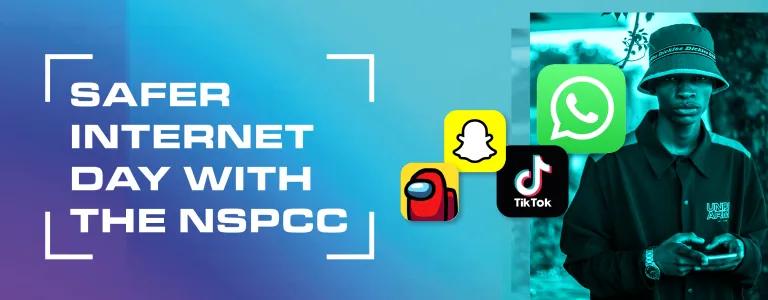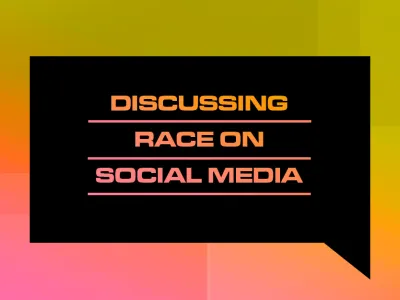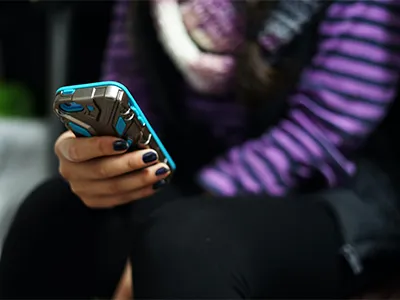
Safer Internet Day With The NSPCC
Written by the NSPCC, who share how you can make sure your online spaces are as safe as possible.
Today is Safer Internet Day, an annual event aiming to raise awareness of emerging online issues and current concerns, from cyberbullying to social networking to digital identity.
At the NSPCC and Childline, we want all young people to be able to enjoy using the internet safely and we are supporting the UK Safer Internet Centre this Safer Internet Day. So here are some top tips on things you can do to help keep yourself safe while using WhatsApp, TikTok, Among Us and Snapchat.
how to stay safe using WHATSAPP
When using WhatsApp, it’s important to remember that it is an end to end encrypted app. This means that only you and the people you send a message to can see the content of that message. This can sometimes mean that it can be difficult to stop people who may be sending messages or content that is inappropriate or upsetting.
However, if you are using WhatsApp and somebody does send you something that isn’t right, at the NSPCC and Childline we’d encourage you to reach out and tell a trusted adult what’s happened. They will be able to support you with this and you can also use WhatsApp’s block button if you want to stop receiving messages from someone.
Also, it’s important that you explore all the different features on WhatsApp as there are many that can share extra information with other people. For example, there’s a feature which shares your location, broadcasts your status, shares your contacts and there’s a disappearing message feature that if enabled automatically deletes your messages after seven days. To help manage these features, you can visit the app’s privacy settings where you can turn them off.
TIKTOK safety tips
To make sure you are using TikTok safely, you can visit the app’s Youth Portal which has all the information that you need about the app’s safety tools and controls.
Recently, TikTok announced it would be changing its default privacy settings for all users aged 13-15 to private. If you are over the age of 15 or if you want to check your privacy settings and restrict your messages so only people you are friends with can see your videos and get in contact with you, then you can check and change this in the app’s settings.
Like WhatsApp, there’s a block button that you can use in case someone messages or shares something that upsets you. You can also use the report feature to flag any distressing content to TikTok’s moderators so they can remove it from the app.
Finally, when uploading videos on TikTok it’s also important to think about what you are sharing. At Childline we’d advise you not to upload or share anything you wouldn’t want your parents, carers, teachers or future employers seeing. Once you post something, you lose control of it and there is no way of stopping other people screen recording and re-sharing a video that you’ve uploaded. So, it’s vital you take the time to think about what you are uploading on the app.

staying safe on SNAPCHAT
When using Snapchat, it’s important to remember that although the content that you share will disappear, people can still screenshot and screen record what you’ve sent. Therefore, like when using TikTok, it’s really important to think about what images and videos you are sharing.
You can also manage who can contact you on Snapchat and who can view your stories by visiting ‘additional services’ in the app’s settings. Also, you can disable the Snap Maps feature. This is where Snapchat can track your exact location so your friends on the app can see where you are.
Finally, you also have the option to report, block or remove someone as a friend and you can also report individual stories that are upsetting you and choose from a list of options as to why you're reporting it.

How to get support if you feel unsafe online...
Firstly, make sure to explore the apps you use and their safety features with an adult. They can also look at Net Aware, a site co-created by the NSPCC and O2, which has guides on all apps that are popular with young people.
And, if you do have a negative experience on any app, remember you can get help and support. Have open conversations with an adult that you trust, or, you can always reach out to Childline and speak confidentially with one of our trained counsellors. Just give us a call, free, on 0800 1111 or visit childline.org.uk. You can also head to our website to find information on feeling good on social media and gaming.




